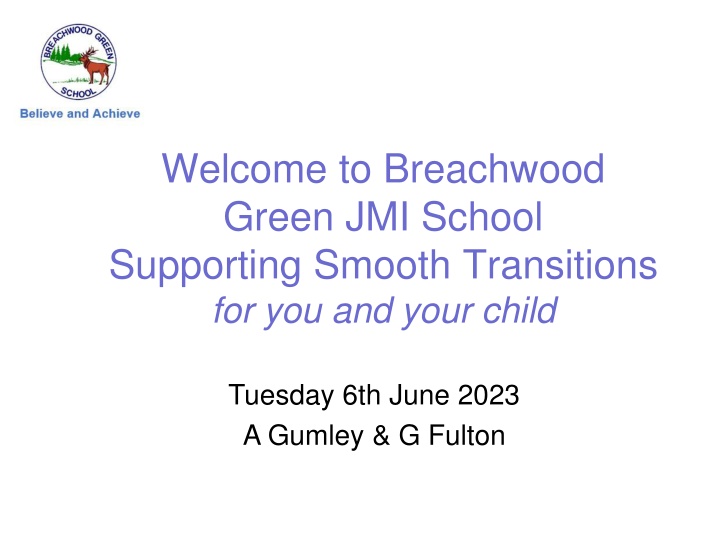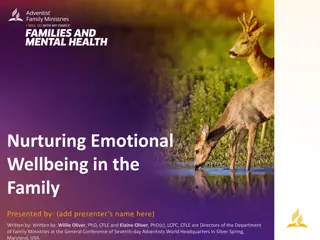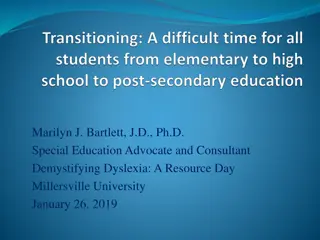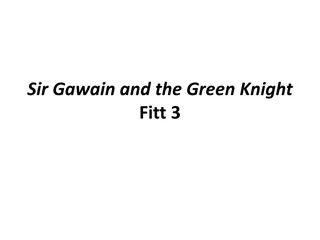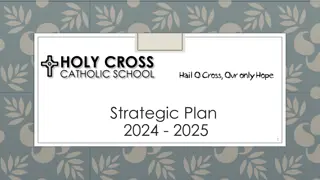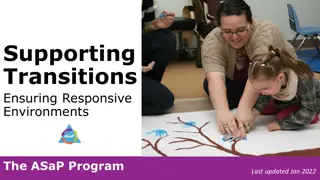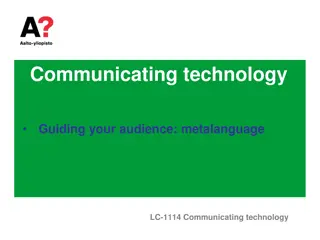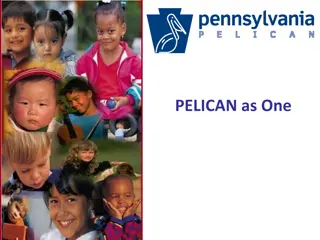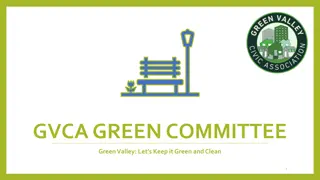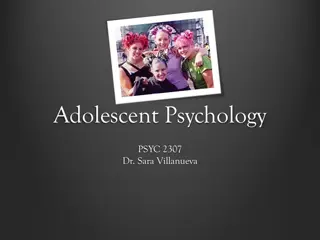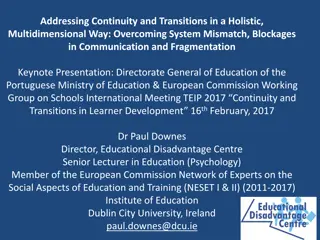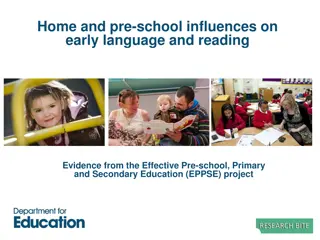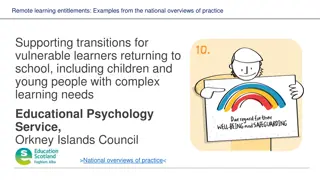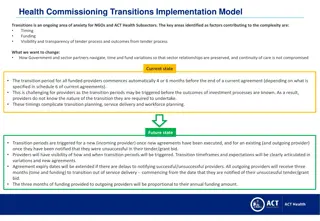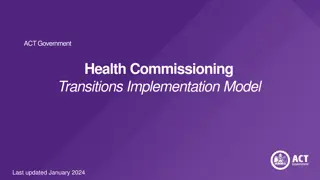Nurturing Smooth Transitions and Early Learning at Breachwood Green JMI School
Providing a nurturing environment, Breachwood Green JMI School supports smooth transitions and early learning for children. With a focus on the Early Years Foundation Stage (EYFS), the school emphasizes communication, language skills, and social development to prepare children for a successful start in their education journey. Engaging parents in the process, the school aims to create a supportive community for children's growth and development.
Download Presentation

Please find below an Image/Link to download the presentation.
The content on the website is provided AS IS for your information and personal use only. It may not be sold, licensed, or shared on other websites without obtaining consent from the author.If you encounter any issues during the download, it is possible that the publisher has removed the file from their server.
You are allowed to download the files provided on this website for personal or commercial use, subject to the condition that they are used lawfully. All files are the property of their respective owners.
The content on the website is provided AS IS for your information and personal use only. It may not be sold, licensed, or shared on other websites without obtaining consent from the author.
E N D
Presentation Transcript
Welcome to Breachwood Green JMI School Supporting Smooth Transitions for you and your child Tuesday 6th June 2023 A Gumley & G Fulton
Welcome to Class 1 Children start well in Reception. Adults are caring and consistent, and they quickly establish clear routines. Adults have developed a purposeful environment where children enjoy learning and playing together. Children are encouraged to sing, talk and share rhymes. Children develop their interests in the world around them. Children gain the knowledge they need and are well-prepared for learning in Year 1. Pupils get off to a good start with learning to read. The teaching of phonics is clear and consistent. In Reception, children start learning to read from the moment they join the school. This approach continues systematically throughout pupils first years in school. Pupils read books that enable them to practise the sounds they are learning. As a result, they become confident and fluent readers. OFSTED February 2022
Aims To give you an overview of Early Years Foundation Stage (EYFS) and what your child will be learning To share ideas of how we can effectively work together and how you can best support your child at home To help you understand what to expect from us
Transition into school - a process not an event Each child is different and some may take a little longer to settle Our transition processes are based on the best interests and needs of your child We will work with you to help your child to settle and be confident in their new surroundings
What is the Early Years Foundation Stage? The Early Years Foundation Stage (EYFS) is an important time in your child s life between birth and age 5. This is a crucial stage as it helps your child get ready for school as well as preparing them for their future learning and successes.
Key Focuses We emphasise the importance of developing communication and language skills including: building up vocabulary by increasing the amount of words children know and can use. encouraging conversations between adults and children, but also children and their peers. recognise that good language skills are the basis for all other learning and social interaction the importance of reading stories and recognise the impact of sharing stories to develop language and children using the story language in their play. We also work hard to develop social skills including taking turns, sharing equipment, listening to others and thinking about how others feel.
7 Areas of Learning 3 Prime Areas Communication and Language Personal, Social and Emotional Development Physical Development 4 Specific Areas Literacy reading and writing Mathematics Understanding the World Expressive Arts and Design
What does learning look like? Characteristics of Effective Teaching and Learning Playing and Exploring Children investigate and experience things and they have a go. Active Learning Children concentrate and keep on trying if they encounter difficulties, and enjoy achievements. Creating and Thinking Critically Children have and develop their own ideas, make links between ideas and develop strategies for doing things.
Baseline Assessment During the first few weeks we will spend a lot of time getting to know your child and observing them as they settle into school. These observations are used to help plan their learning journey. We also carry out a statutory national baseline assessment.
Getting to know you and your child We are planning to do this by: Stay and play sessions- 4th July and 13th July Information gathered from you and visits to the previous setting We will: Liaise with the previous setting to find out as much as we can about the things your child enjoys and their learning journey so far. Arrange a time to talk to you and find out more about your child. It will be an opportunity for you to ask questions, share concerns and get to know us a little better
How can I support my child to be ready for school? Enjoy physical activities together Communicate and talk with your child Have fun with maths Share stories and let your child see you read Encourage your child to talk and play with others Ask your child to do things by themselves and be independent
Communicating with you Communication plays a huge role in ensuring that you are regularly sharing information with us to best support your child. We do this by Termly parent consultations meetings Home learning (may include joint child and parent/carer mini projects) Parent/carer workshops (for example, how to support early reading) Information and tips in newsletters, on social media and the school website Information on our website and around school Email admin@breachwoodgreen.herts.sch.uk School Website https://breachwoodgreen.herts.sch.uk/
Supporting individual needs Our SENCO is Mrs K Badham If you are concerned about your child's learning and development discuss this with the class teacher. The school's Special Educational Needs Coordinator (SENCo) supports children who need additional help.
Keeping children safe Safeguarding/Child protection Children have a right to be cared for and protected and that protecting them is everyone s responsibility. It is everyone's duty to respond to concerns about a child's safety. All staff are trained and follow procedures in our school s Child Protection policy (copy on the website). Mobile Phones must not be used in school/setting. The school has a policy on sharing images and we will seek your permission for this. Road safety and parking we promote walking to school but if using a car please follow the one way system. Drop off and collection procedures if there are any changes in regards to who is collecting your child from school you must let us know, including if they are going home with a friend or grandparent. Accidents all accidents in school are recorded and first aid is administered in line with the school policy. Existing injuries please make us aware of any existing injuries when your child comes to school in the morning, it s part of our safeguarding procedure to investigate any unexplained injuries.
Children who are unwell it is school policy to keep a child off school at least 48 hours after the last attack of vomiting and diarrhea. The school needs to be informed of any contagious/infectious illnesses Medication The staff will only administer essential medicines . Please contact the school office in order to complete the necessary form. If your child has a specific medical condition which needs constant treatment, you need to speak to the Head Teacher. policy on administering medication (for example, antibiotics or paracetamol) Individual medical needs vital for parents to share information about their child s individual medical needs such as allergies so that a Health Care Plan (HCP) can be completed with the parent/carer Attendance - 96% attendance is expected. Regular attendance helps children to have a good routine and help them to settle more easily and make better progress with learning and development. However, if your child is unwell we ask that you notify us before 9.00 am.
Uniform This is our school uniform. Uniform including PE bags can be ordered through Mrs Fox in the office. Where possible, please purchase items where the children can manage their own fastenings Outdoor learning your child will need clothes for cold weather e.g. a waterproof coat and wellington boots. We ask that a pair of wellingtons remain in school as the children will be outside in all weather, these must be named. Clothes for warm weather in the warmer months please provide sunhats and apply sunscreen before coming to school. Remember everything needs to be named!
Daily Routine 8.45 Arrival and registration Activities led by an adult Children are provided with a healthy snack and the option of milk Child initiated activities supported by adults LUNCH Activities led by an adult Child initiated activities supported by adults Story Home- Please collect your child from the side door 12.00 1.00 3.20
Ready for school If they can independently go to the toilet and wash their hands Put on and fasten their own coat Put on and take off their PE kit Please visit our virtual tour or listen to Mrs Gumley reading a story. These and other information can be found on the new starter tab on the website.
No question is a silly question If anyone has anything they would like to ask please feel free to send an email If you have any questions personal to your family there will be an opportunity to ask these at your meet and greet session.
